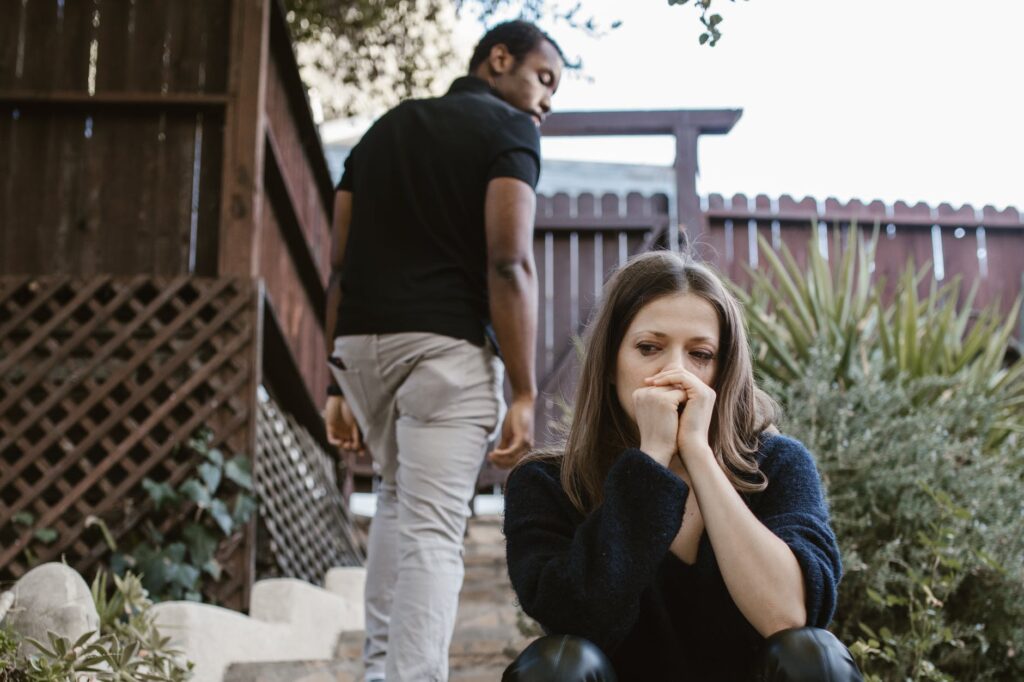5 Beliefs Keeping You Single

There’s a famous quote from the 1995 romantic film Before Sunrise that goes, “Everything we do is just a way for us to be loved.” Would you agree? Well, a lot of people in the world certainly seem to, as nowadays everyone seems to be obsessed with finding love and being in the perfect relationship. And while there’s nothing wrong with staying single, especially if it’s by choice, it’s no doubt frustrating to constantly be let down in the pursuit of true love and have nothing but a broken heart to show for it.
After a few failed relationships (or maybe an entire lack thereof), we just can’t help but ask ourselves, what are we doing wrong? Will we ever find true love? Well, don’t fret. Luckily, psychology has a few good answers for why true love seems to elude a lot of us and what we can do about it. With that said, here are 6 of the most common beliefs that keep people single:
1. “I won’t be complete without a relationship.”
Have you ever noticed that, ironically, it’s always the people who want to be in a relationship the most that just can’t seem to make it work? Sure, they date lots of people and never stay single for long, but their relationships seem to fizzle out just as quickly as they came to be. Why? Well, it’s probably because they have mistakenly come to believe that they need a relationship in their life to be happy. But unbeknownst to them, it’s actually that kind of desperation that’s holding them back from finding true love. Because a lot of the time, they probably just settle for whoever comes along who’s interested in them without truly reflecting on what they want in a partner, what they want out of a relationship, and their worth as a person even without one.

2. “It didn’t work out for my parents, so it won’t work out for me.”
There’s an interesting, well-known study conducted by Glenn and Kramer back in 1987 that found that children of divorce were actually the most likely to end up divorced themselves and have the least amount of commitment to their own marriages in spite of a great self-proclaimed desire otherwise. And many psychologists and researchers since then have speculated that it’s because parental divorce can have a powerful and lasting effect on our attitudes towards relationships even when we grow older. So if it didn’t work out between your parents, you might think all your relationships are doomed to fail, too.

3. “Everyone’s just going to leave in the end.”
Similar to the earlier point, experiencing parental abandonment in your earlier life can also negatively impact our chances at success in forming meaningful and lasting relationships. In attachment theory, we’d call having this kind of belief a characteristic of those who are “anxious-avoidant.” People who have this kind of insecure attachment style tend to have a negative view of others but a positive view of themselves so they become overly self-reliant, emotionally distant, and afraid of intimacy and commitment. They feel uncomfortable with physical and emotional closeness, have trouble sharing their true feelings, and tend to pull away when they feel others getting too attached to them.

4. “I’m too damaged to love.”
People who’ve experienced a traumatic event — most especially a toxic or abusive relationship — tend to wrestle with a lot of feelings of guilt, self-blame, and worthlessness. They’ve internalized that trauma to mean that they are broken or that there must be something wrong with them, making them too damaged to love. But if this is true for you, it’s important that you understand that you are not what happened to you and that the harm other people brought upon you was never your fault. And some day, when you’ve begun to heal from the past and resolve this trauma, you will find someone who will help you see that.

5. “I’m still waiting for THE ONE.”
Last but certainly not the least, another belief that might be keeping you single is the idea that there’s someone out there who’ll be able to perfectly meet all of your unrealistically high standards and expectations. Don’t get us wrong, there’s nothing bad about believing in soulmates; it’s just that so much of the logic behind it is inherently flawed. And if the psychology of successful relationships has taught us anything, it’s that it’s more about being the right person than finding the right person. To illustrate, one of the most famous relationship experts in the world, psychologist John Gottman, has found that all happy long-term relationships exhibit mutual understanding, awareness, acceptance, respect, and reciprocity of appreciation and relationship maintenance. Notice how what we do seems to matter more than the qualities we bring to a relationship? That’s because no relationship will ever be perfect, and even the right one doesn’t just happen. We have to make it happen ourselves!

So, do you relate to any of the things we’ve mentioned on our list? Are you guilty of believing some of the things here that keep you single against your choice? Although we might not realize it, our thoughts have so much more power over us and our lives than we first think. So it’s important that we’re mindful of the kinds of beliefs and attitudes we have towards our relationships.
In the words of Plato himself, “Reality is created by the mind. We can change our reality by changing our mind.” No matter what it is that’s been holding you back from finding true love, know that you can always reclaim your power by adopting a more positive mindset. Look for love all around you, become more loving towards yourself, and you’ll surely find true love in no time.
So, how do you plan to overcome your resistance to love? What limiting belief will you be challenging from now on?
References:
- Glenn, N. D., & Kramer, K. B. (1987). The marriages and divorces of the children of divorce. Journal of Marriage and the Family, 811-825.
- Fraley, R. C., & Roisman, G. I. (2019). The development of adult attachment styles: Four lessons. Current opinion in psychology, 25, 26-30.
- Gottman, J. M. (2014). What predicts divorce?: The relationship between marital processes and marital outcomes. Psychology Press.



Responses